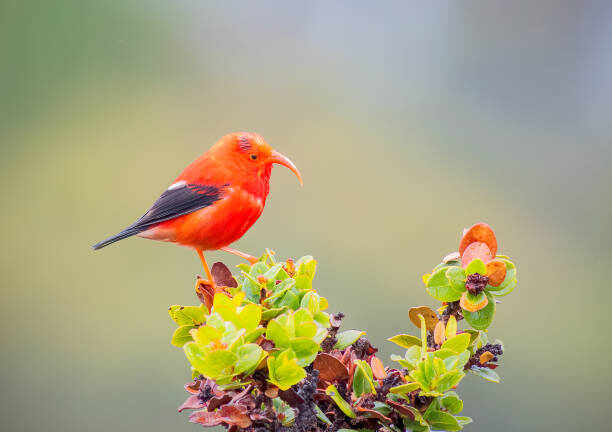
(AmericanProsperity.com) – In Hawaii, there are millions of mosquitoes being released in a last attempt to save rare birds that are falling into extinction. The bird is the honeycreeper and it is dying due to malaria carried by mosquitoes introduced by European and American ships.
These birds can die from just a single bite since they don’t have any immunity to the disease. Thirty-three species of the honeycreeper bird are extinct and there are seventeen more that are not far behind it. Experts say that if no action is taken, these birds will be fully extinct by the end of the year.
Conservationists have started trying to save the birds with an odd strategy that includes releasing more mosquitoes on the island. Every single week a helicopter drops two hundred and fifty thousand male mosquitoes, which carry a natural bacterium that works as a birth control on the islands.
The forest bird program coordinator for Maui’ Haleakalā National Park, Chris Warren, said, “The only thing that’s more tragic is if [the birds] went extinct and we didn’t try. You can’t not try.”
To put things into perspective, one type of honeycreeper, the Kauaʻi creeper, has gone from a population of over four hundred to just five since 2018, and now there is just one single bird left on the Kauaʻi island.
Hawaii birds didn’t evolve alongside Malaria and therefore they have almost no immunity to it. The Scarlet honeycreeper is one species that has a ninety percent chance of dying if they are bitten by a mosquito that is infected with malaria.
The idea behind this interesting way of combating mosquitoes is that they are releasing mosquitoes with a bacteria that will stop the eggs of females from hatching. Since female mosquitoes typically only mate one time, this would, over time, decrease the total population in the area.
China and Mexico have used this technique to decrease their mosquito populations and it’s being expanded even to California and Florida.
Dr Nigel Beebe, from the University of Queensland, looked into how effective this technique truly is, saying, “It’s much better than using pesticides that have large non-target effects. Especially for things like conservation of critical species.”
Copyright 2024, AmericanProsperity.com









